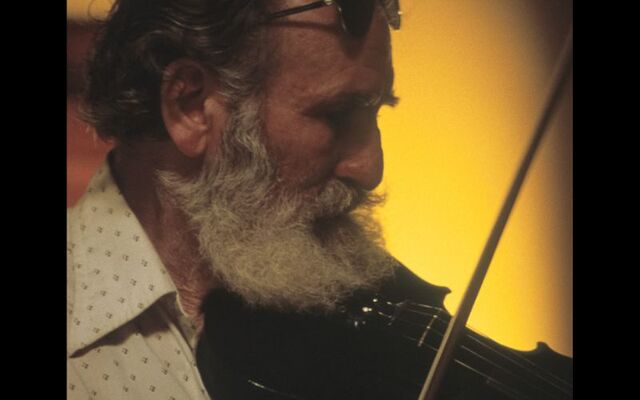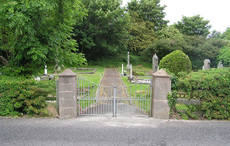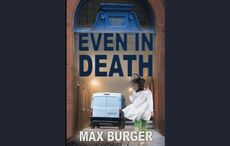During my donkey travels around Ireland in 1979, I received permission to camp out for three days in Glynn’s Field, outside the village of Doolin, Co Clare.
The field, bordered by drystone walls and the swift-moving River Aille, was the perfect meadow for my nut-brown damsel to graze, lest she go rambling off with a bugling jack.
“You might take in the Cliffs of Moher while you’re here,” suggested 13-year-old Donal Glynn, eager to be Missie’s caretaker during my respite.
“Or the Aran Islands or the Burren itself,” the boy continued to offer, proud of his native surroundings.
That Sunday, after visiting the prehistoric fort of Dun Forma on Inisheer Island, seven miles from Doolin Pier, I stopped in for a pint at Gus O’Connor’s Pub on Fisherstreet. The pub is renowned throughout the country for its traditional music sessions.
“You’re in luck today,” said Robert Shannon, a young man who owned the River Aille hostel next to my encampment. “The fellow playing the tin whistle is Micho Russell, who won the All-Ireland in 1973. The bearded gent is Ted Furey, one of the finest fiddlers in the land. His four sons are gifted musicians as well.”
Enjoying the lively session, a patron called out to the fiddler, “Do you know ‘The Rambling Pitchfork?’”
“Know it?” Ted Furey replied jokingly. “Why, I can play that jig backwards.”
To everyone’s amusement, the engaging musician turned his back to the crowd and began to play the lively tune.
Next morning, Robert Shannon poked his head into my tent.
“Ted Furey died suddenly last night,” he said, holding back his tears.
“But at least he died here in Doolin, his favorite spot. The fiddler of Fisherstreet, he was, and that’s how I’ll always remember him.”
Read more
Years later, my brother Dermot invited my wife Belita and me to see The Furey Brothers perform at The Parting Glass in Saratoga Springs, New York. By that time, Ted Furey’s four sons—Eddie, Finbar, Paul, and George—had become very successful. Their breakthrough album, “When You Were Sweet Sixteen,” gained worldwide acclaim and topped the Irish charts in 1982. The album included the ballad, "The Old Man," which was a tribute to their late father, written by noted singer/songwriter, Phil Coulter.
The chorus:
Oh, I never will forget him,
For he made me what I am,
Though he may be gone,
Memories linger on,
God I miss him, the old man.
Thrilled I was going to see The Fureys perform in concert, I dusted off the old Kodachrome slide I’d taken of Ted Furey that long-ago Sunday in Doolin, to make copies for his sons. I was certain they had far better photos of their famous dad, but not one taken just hours before he passed. Besides, this would give me the chance to meet and tell them how much I enjoyed their music.

Ted Furey, Gus O’Connor’s Pub, Doolin, Co. Clare, May 13, 1979. (Kevin O'Hara)
The Parting Glass was hopping that March night in 1990 when Dermot, Belita, and I were met at the front door by Dermot’s good friend, Bob Cohan. Bob had married into the pub and promised he’d hook me up with the group before night’s end.
When The Fureys hit the stage, they played a number of hits, including "The Green Fields of France," "From Clare to Here," and "Red Rose Cafe." Between songs, they entertained the house with their colorful banter, while showcasing their expertise playing traditional instruments, such as the tin whistle, uilleann pipes, and bodhran.
During intermission, Bob escorted me to the green room to meet the group. After I shared my story, I handed each of them a colored print. They were taken aback at first, never lifting their eyes from their father’s image. Then they gratefully thanked me, wanting to know more about that fateful Sunday at O’Connor’s. Was Dad in good spirits? Had he been playing well? Did he show any signs of distress? They added he most likely died of an aneurysm at the Bed & Breakfast where he was staying. Before I left their company, they graciously gave me a signed copy of their latest CD.
When they returned to the stage, Finbar, the lead singer, mentioned the surprise photo to the audience and gave a nod in my direction. The four brothers then launched into “The Old Man,” and I don’t believe they had ever played it so beautifully.
At the song’s conclusion, there wasn’t a dry eye in the house, including their own.
*This story first appeared in The Berkshire Eagle, Pittsfield, Massachusetts. Kevin O’Hara is the author of “Last of the Donkey Pilgrims: A Man’s Journey through Ireland." You can learn more about Kevin O'Hara on his website TheDonkeyman.com.




Comments